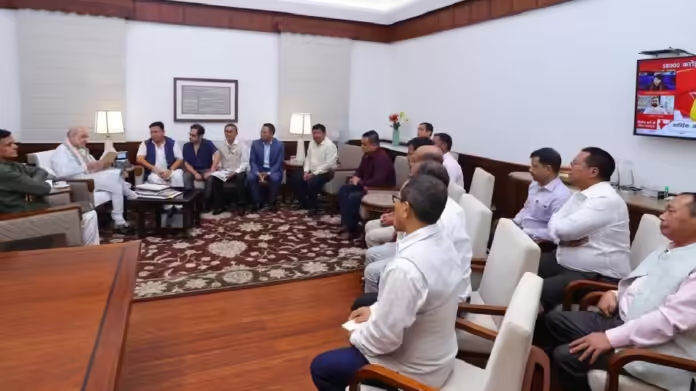Union Home Minister Amit Shah has assured leaders from the Northeast’s District Councils that their issues will be addressed within a month. In a significant meeting, former Tipra Motha chairman Pradyot Kishore Manikya Debbarma, along with other leaders, discussed the concerns of indigenous peoples and the functionality of the District Councils.
During the discussion, Shah emphasized the government’s commitment to resolving these issues promptly. He announced the formation of a special committee tasked with addressing the specific challenges faced by the councils. This committee is expected to provide solutions that respect the unique cultural and administrative needs of the indigenous communities.
Debbarma expressed optimism following the meeting, noting that this was a positive step toward addressing long-standing grievances. He highlighted that the District Councils play a crucial role in the governance and cultural preservation of the region’s indigenous populations. The issues discussed included administrative autonomy, resource allocation, and the preservation of traditional rights and practices.
The assurance from the Union Home Minister comes at a time when the Northeast region has been vocal about its demands for greater recognition and support from the central government. The leaders stressed that addressing these concerns is vital for maintaining social harmony and ensuring equitable development.
Shah’s commitment to forming a committee and providing a resolution within a month has been seen as a proactive measure to ease tensions and demonstrate the government’s willingness to engage with the region’s leaders. The committee’s findings and recommendations will be closely watched as they could set a precedent for how the central government addresses similar issues in other parts of the country.
The meeting concluded with a promise of ongoing dialogue and cooperation, with Shah encouraging the leaders to continue engaging with the government to ensure the successful implementation of agreed-upon measures. This development has been welcomed by the District Councils and indigenous leaders, who see it as an opportunity to bring about meaningful change and recognition of their unique cultural heritage.


